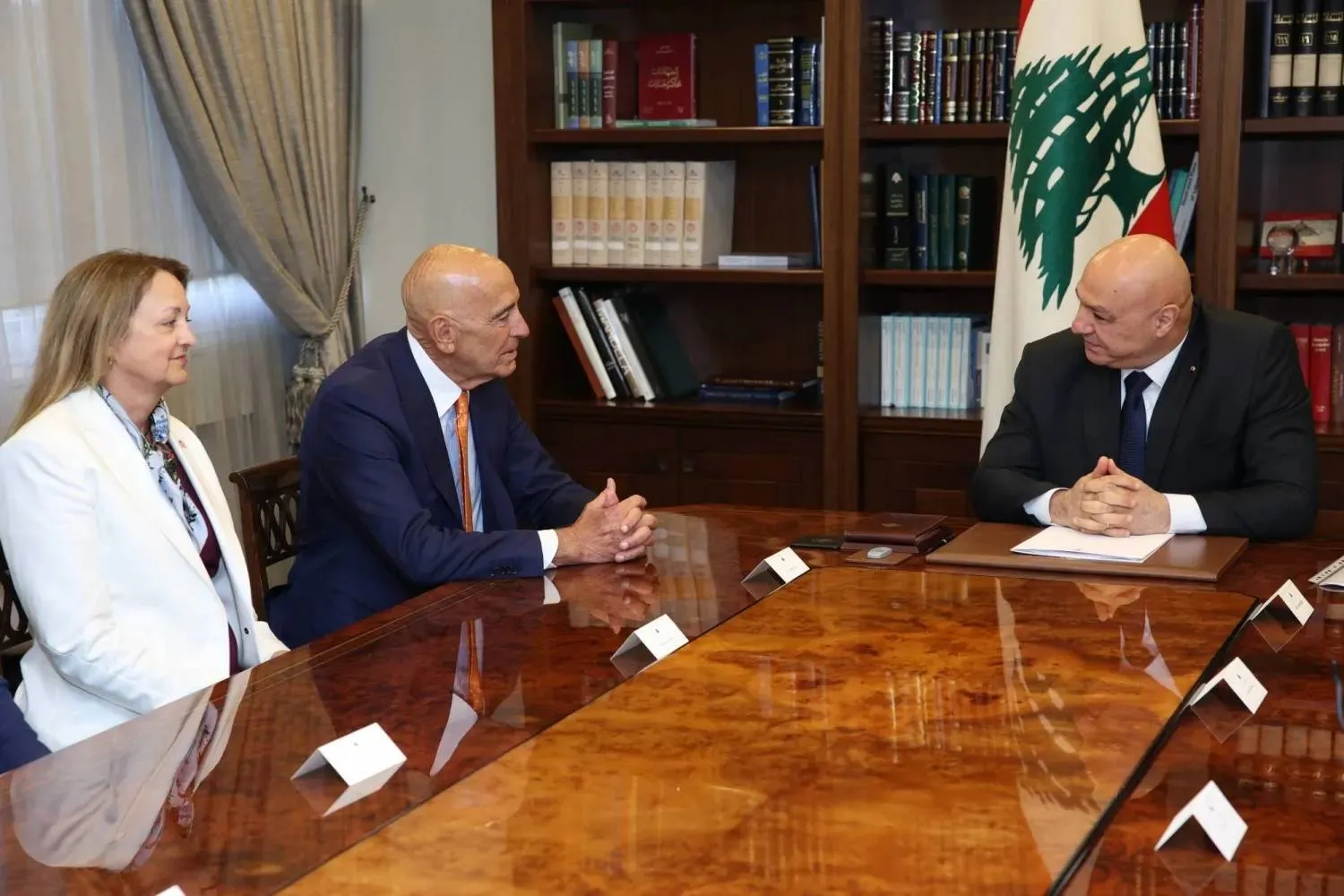Lebanese officials have been racing to formulate a response to a letter delivered by US envoy Tom Barrack during his visit to Beirut last week, in which Washington pressed Lebanon to take concrete steps towards implementing UN Security Council Resolution 1701, including the disarmament of Hezbollah.
According to information obtained by Asharq al-Awsat, the Lebanese presidential committee assigned to handle the matter held a meeting at the presidential palace on Tuesday to review the American letter.
The aim, sources said, was to reach a unified Lebanese position that upholds national interests and affirms the state’s exclusive right to bear arms.
A senior Lebanese official familiar with the committee’s work told the newspaper that President Joseph Aoun, Parliament Speaker Nabih Berri, and Prime Minister Nawaf Salam had all received a copy of the US reply through an American embassy official.
The urgency of the matter prompted an emergency meeting of the three-way presidential committee to coordinate a unified national response ahead of Barrack’s expected return to Beirut later this month.
“The US message was polite in tone but firm in substance,” the official said, speaking on condition of anonymity.
“The Americans want Lebanon to set a clear timeline for the removal of all illegal weapons across the country. They expect the disarmament process to be completed by the end of the year, with the Lebanese army and security forces asserting full control over all national territory.”
While the US side appeared to acknowledge Lebanon’s complex internal dynamics and the need for national dialogue, the official said Washington viewed the six-month grace period already granted as sufficient.
“The Lebanese government is obligated to uphold the commitments made in the president’s oath of office and the ministerial statement that affirm the state’s monopoly over arms,” the source added.
“However, Lebanon will seek guarantees in return – including a full Israeli withdrawal from five occupied points in southern Lebanon, border demarcation with Israel, the release of Lebanese prisoners, a reconstruction plan for war-damaged areas, and an end to Israeli violations by land, air, and sea.”
The official also said Lebanon would demand an end to targeted assassinations of Hezbollah members, which Israel justifies as preemptive strikes.
Sending the US reply ahead of Barrack’s return, the official said, underscores Washington’s pressure on Lebanon to deliver a clear position on the future of Hezbollah’s weapons.
A Lebanese cabinet source told Asharq al-Awsat that the preemptive American move was intended to give Beirut time to study and respond to the proposal, allowing space for amendments or objections.
“The US message is focused on securing a decisive Lebanese stance on a timeline for disarming Hezbollah and Palestinian factions, as well as the removal of all illegal arms,” the source said.
“Washington also wants a concrete implementation mechanism to prevent any backtracking, as happened after Resolution 1701 was adopted in 2006 – when Hezbollah sidestepped its obligations and rebuilt its arsenal.”
The source acknowledged that any final decision will require dialogue with key domestic players, particularly Hezbollah, but stressed that the official stance must ultimately come from the president and the government.







